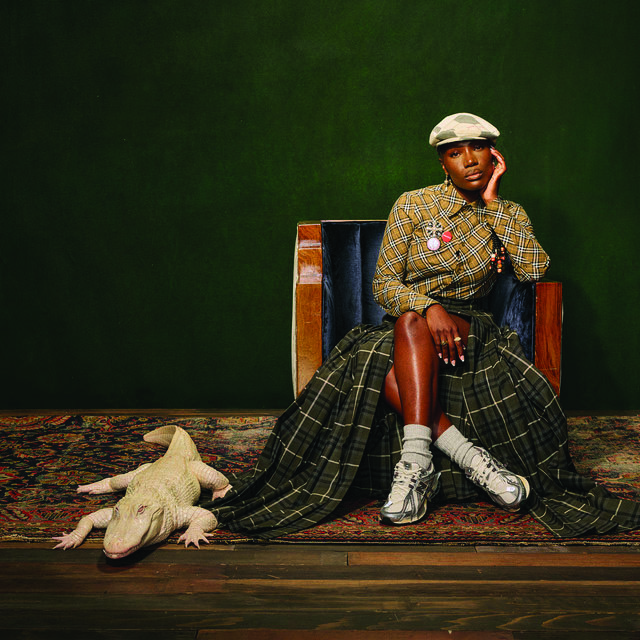“The Kitchen Table” is a series of photographs by Carrie Mae Weems that explore the journey of Black women.
Throughout the 20 palladium prints and 14 screenprints, the table remains the same. What changes are the characters around it. One image shows the main subject, a woman who sits at the head of the table, along with another woman and two children. The main woman is the only person not moving in the image, which shows a disconnect between the other people in the photograph.
Starting at birth, women are shaped to be “good” mothers; how they are seen and valued is based on being the perfect woman who can bear a child and be a mother. The health and needs of women are put aside to care for children and I think this series does well to touch on this notion. The bags under the woman’s eyes from work and raising a child are visible and her eyes are tired from the sleep she will never be able to catch up on. The one still woman in the frame stares longingly at her daughter as if she knows her fate and what she will endure in the world. She stares at the girl, desperate for her innocence to remain and yearning for something that she will never have again.
A friend once said, “My mother is just a girl who wasn’t meant to be a mother” and I think this can be mirrored not only in her mother but every mother.
The next piece in the series is text that elaborates on what is happening in the image. It says, “He wanted children. She didn’t. Her sisters thought the world of their children. When her kid finally stood and walked, she watched with a distant eye, thinking, “Thank God! I won’t have to carry her much longer.” Oh yeah, she loved the kid and she was responsible but took no deep pleasure in motherhood, it caused a deflection from her own immediate desires, which pissed her off.
Often, we neglect the tribulations of being a mother. The post-partum resentment they face toward themselves and the child they bore.
Not all women are meant to be mothers, not in a sense they are unfit or terrible, but more than some people do not need that life and what it brings. The Kitchen Table details this. It shows the gritty, unspoken truth of being a mother, the hatred for a daughter that only a mother can feel, for stealing her innocence and knowing that her daughter will have to face the same world.
Everyone takes advantage of their mother and all they do for them. They think a mother’s work is done when everyone is asleep or a child is grown, but it never truly ends. She is forced to face her creation(s) and what they do with the life they have been given. She is forced to look at the face of her partner, though she is tired and weary and accepts whether she wants it.
This is her reality.
As a Black woman, the main character not only has to play the role of the perfect mother but she also must be the model citizen. She must teach her daughter the cruel lesson of what it means to be a Black woman in modern society. The mother stares at her daughter, her hair tied up and silly earrings, knowing what her daughter will have to face, knowing these will both be things she is criticized for as she grows. The woman can see herself reflected in her daughter, not only in her features but the naivety of her surroundings. She can look at her daughter and hope she will not raise her the same as her mother raised her. However, she will slip into the same role and become the one person she hated most, her own mother. It is an endless cycle.
So, while the photo may seem like just the image of a woman with people around her blurred, it is about much more than that. It is about the unfair treatment of mothers, Black women and everyone in between, the unrewarding work of being a woman and mother and never truly being able to live the life you want.





